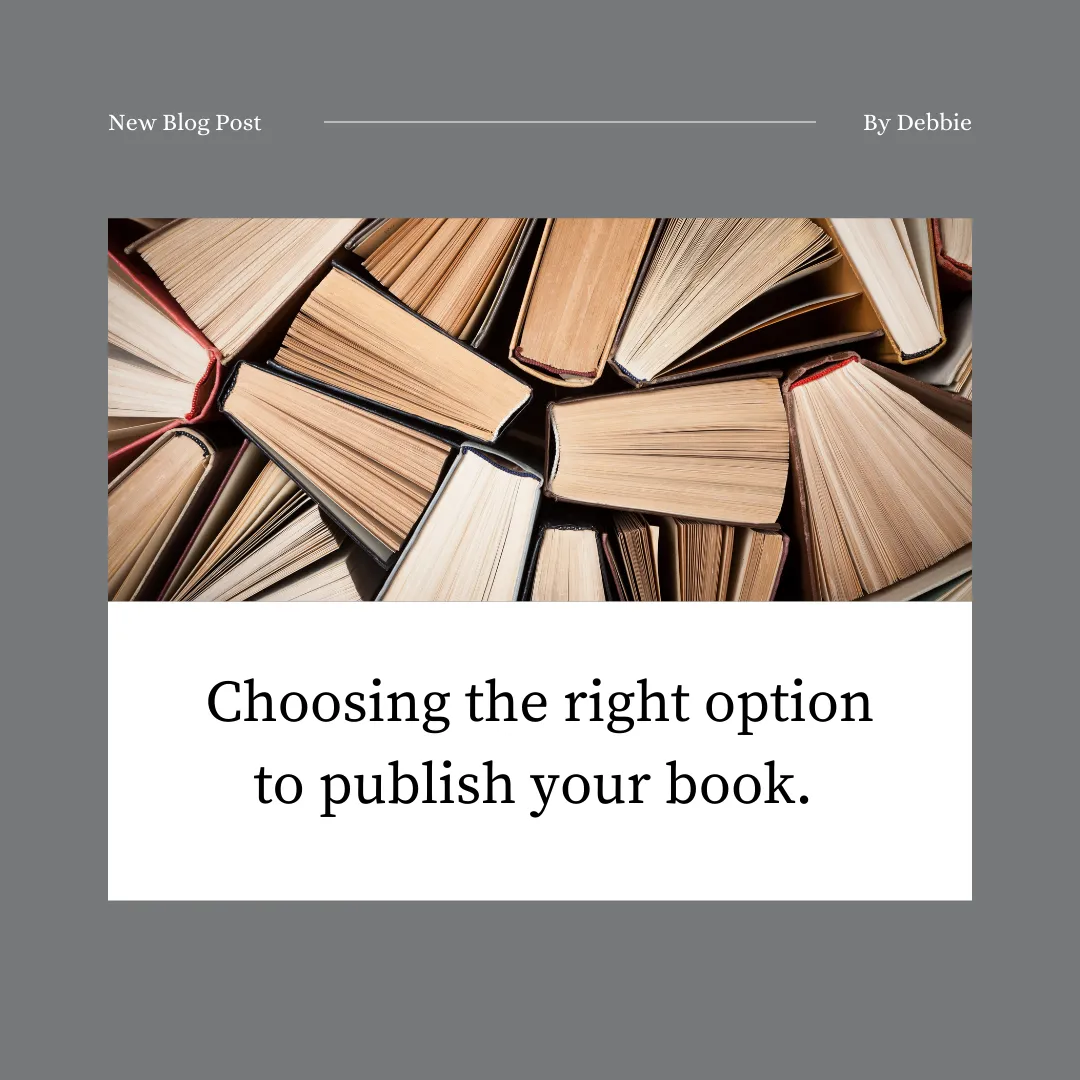Publishing choices used to be limited. They’re not anymore, but it can still be somewhat confusing. Let me make it a little easier to be an informed shopper as you explore your options. There are no right answers in making your choice, but there is a right answer for you, your book, and your situation. The more you’ve thought about and written down your goals, the easier your decisions will be when choosing a publishing avenue for your book.
Self Publish. With this route, you are in the driver’s seat, start to finish. You’ll find contractors for any outside services you need, or do it yourself, at your direction and discretion. If you want to be in control and get exactly what you want the way you want it, this is the publishing path for you. The disadvantage is that, like trying to build a house without an outside contractor, you may need advice and guidance from a professional in order to be truly happy with the end result. However, if you want a book for a limited audience, such as a family history or church fund-raiser, this may be the exact right choice for you. If you’re looking for more professional guidance along the way to a published, distributed and well-marketed book, you may want to investigate other options.
Traditional Publishing. With this “choice,” they have to choose you. It’s getting harder and harder to get a traditional publishing contract, unless you are a big deal in your industry, a celebrity, or both. Merely being a good writer with a good manuscript is no longer enough. To try this path, you’ll need a polished book proposal — think of it as a business plan for your book — as well as an already sizable following, called a platform. A platform is the collective name for the group of people who know or follow you, either through your time on a speaking circuit, radio or TV show, podcast or other social media. You’ll also need a literary agent and a great deal of patience because each publisher can take up to several months to decide to accept or pass on your proposal, and many don’t accept simultaneous submissions. This is where a literary agent will guide you and earn every bit of their commission. Once all of that has happened and you have been offered a contract, the publisher will take over. You’ll give up almost all control over key decisions, including title, cover design, editing and more. The publisher is paying for all these things to be done by professionals, with an eye toward marketing your book. So your original concept and opinions will certainly be considered, but in the end, marketing rules. Since the publisher is essentially financing your book launch, their opinion is the one that counts. The advantage is that you’ll have the benefit of a big name publisher behind your book, but you will still be required to do most of the heavy lifting when it comes to marketing and promotion. Publishers play a numbers game. Your book will get a certain amount of money and attention, and then they will move on to the next book leaving the rest is up to you. In addition, you’ll make the smallest percentage of royalty on your book when you work with a traditional publisher.
Hybrid Publishing. As the name suggests, hybrid publishing is a cross between traditional publishing and going it all by yourself. The Independent Book Publishers Association (IBPA) has developed standards they feel you should be able to expect from hybrid publishers, although there is no enforcement mechanism and anyone can say they’re a hybrid publisher, so make sure you check with any supplier about their services and exactly what they mean by what they say.
IBPA defines a hybrid publisher as one who:
- Has a definite mission and vision for its publishing program.
- Vets submissions.
- Publishes under its own imprint(s) and ISBNs.
- Publishes to industry standards
- Ensures editorial, design, and production quality.
- Pursues and manages a range of publishing rights.
- Provides distribution services.
- Demonstrates respectable sales.
- Pay authors a higher-than-standard royalty.
Some small publishers offer a mix of options, including self-publishing services as well as a hybrid path, so again, ask questions to be sure you know what you’re getting in terms of service and direction, and to ensure that what you’re getting is what you want. If you have further questions, feel free to reach out to us at visionrun.com.

